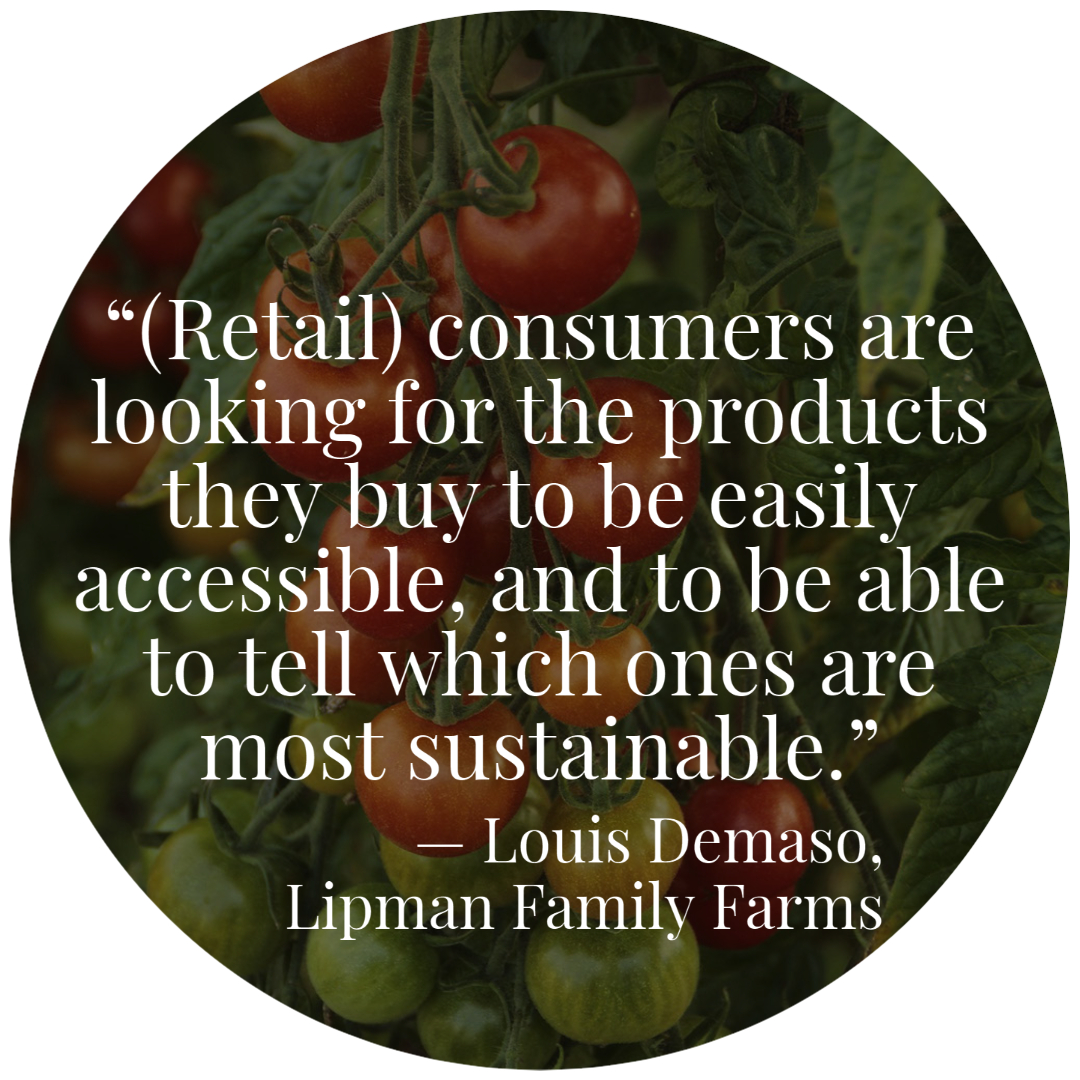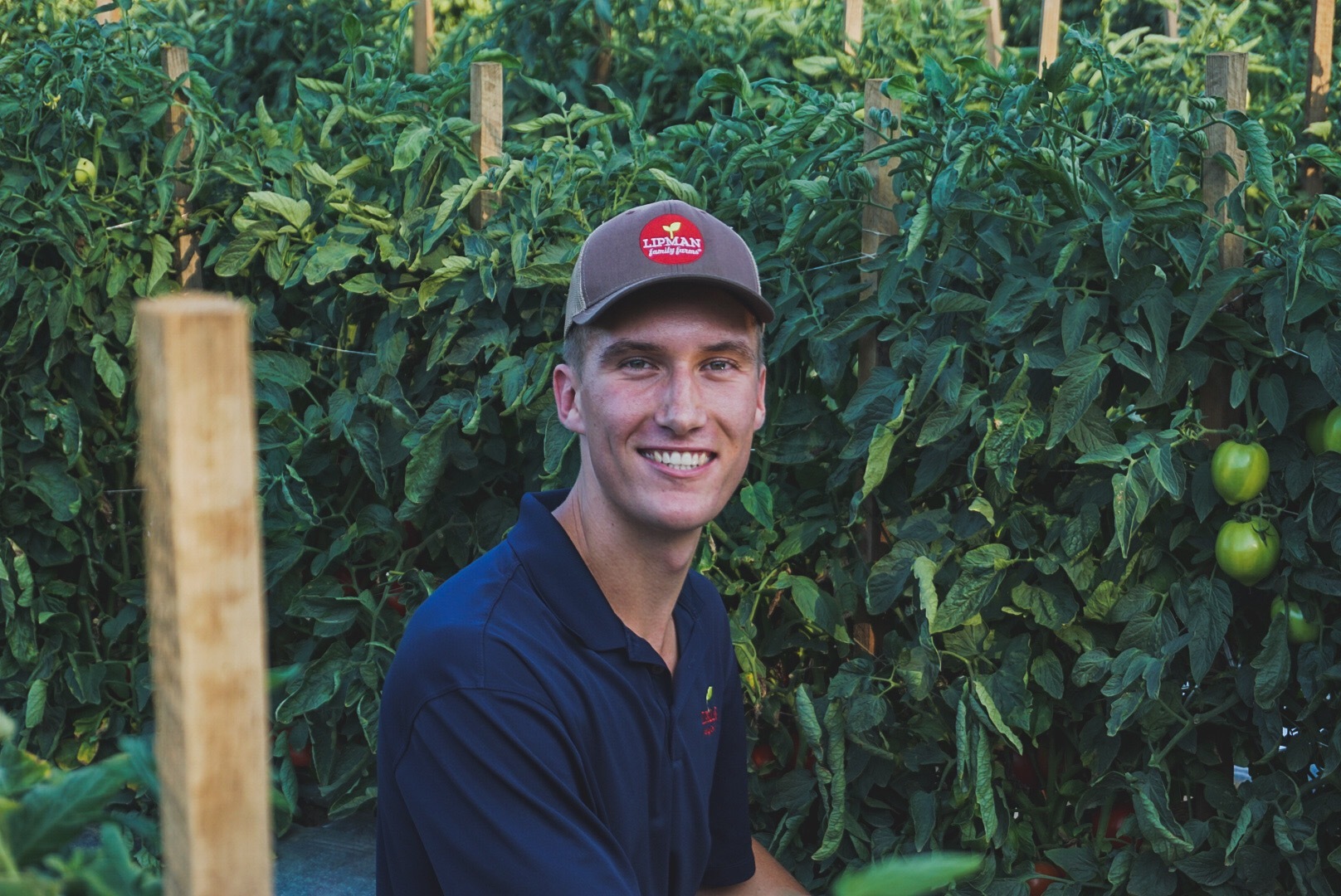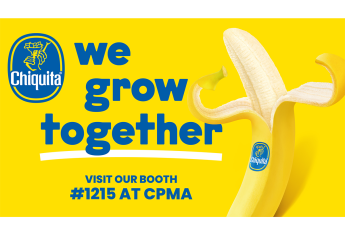Seeking out sustainable solutions
Packer Interview Louis DeMaso
Led by their own-self-interest as well as encouragement from retailers and consumers, produce companies are increasingly engaged on the issue of sustainability, whether that means packaging, water conservation, energy use or limiting the carbon footprint. The Packer’s Tom Karst visited recently with Louis DeMaso, sustainability and operations analyst for Lipman Family Farms, Immokalee, Fla., about Lipman’s work in sustainability and what drivers have played a part in their initiatives.
The Packer: I know Lipman Family Farms is very active with the sustainability issue, particularly related to packaging. Tell me some of the recent things you’ve done with packaging as it relates to sustainably.
DeMaso: We recently released our compostable packaging for our Grown True (organic) grape tomato line. And that’s really the start of a larger sustainable packaging pilot program internally. We’re starting to develop expertise in this area and better understand the challenges that we face in implementing these types of packages for our customers.
The Packer: When you look at packaging, it’s not necessarily just making one decision and it’s all over. You have got to look at how (packing lines) work with the packaging, and how the packaging treats the product and what it means in terms of packing efficiency. How do you, as an organization, go through that process?
DeMaso: First and foremost, we defined sustainable packaging by looking at those materials that are involved in the packaging. Incorporating compostable, recyclable or post-consumer recycled materials, whenever possible, is our first priority. As you mentioned, a lot of the work that we’re doing right now is to look into some of those other challenges that we face in implementing (sustainable) packages and overcoming them.
One of (the challenges) is the material itself, and how that contributes to packing logistics. Oftentimes a more traditional plastic type of package is very uniform in shape and dimensions and so it is easier to automate, and you can run the (packing line) faster with it. With more natural materials, there are challenges to be overcome when it comes to the speed at which you can pack, which comes back around to cost and efficiency. The materials themselves can cost more, which can translate to higher packaging prices for consumers and for us.
Figuring out those supply chains so we are able to offer a cost-competitive solution is also important. And then the durability of the packaging, because, of course, our products wind up going through severe temperature changes and humidity changes, and when they’re in their refrigerated truck and they are going into a humid region, they need to be able to hold up and protect the fruit, or otherwise, you will end up with food waste. So, trying to find a package that is durable enough to protect the fruit and get to the customer but natural enough to break down after it gets to the customer is the goal, and that’s a very fine balance to strike.
The Packer: There has got to be enthusiasm, both from your perspective of wanting to do a good job with sustainability, whether it’s recyclable or compostable materials, and also from your customers, who are equally interested in the progress you can make with packaging. Describe what you’re hearing from customers about sustainable packaging.

DeMaso: Consumers are really driving the sustainable packaging trend, and our customers are looking for ways to be able to satisfy that demand. So, (retail) consumers are looking for the products they buy to be easily accessible, and to be able to tell which ones are most sustainable. There’s a component of labeling and making sure that the consumer understands what types of materials are involved with the packaging is important, and also just making sure that the materials work.
The Packer: Talking about a little bit about your history with Lipman, how long have you been part of the organization? What have you done since you’ve been at Lipman, relating to packaging already, and where is the opportunity for future progress and growth in that area? Describe the journey that you’ve been on.
DeMaso: I’ve been with Lipman for about three years now; I’m involved with all kinds of operations improvements and efficiency projects. That’s been part of the deal, looking at ways we can implement technology and use data to become more efficient and become more effective. There is a large component of that (which) plays into our goals for food sustainability. We’re really trying to develop systems to be a KPI (key performance indicator) driven sustainability company. That comes back to making sure that we’re implementing sustainable concepts, but also backing that up with the system necessary to collect data about the effects, those are having to be able to tell our story in numbers. As I mentioned, with the packaging piece, consumers are really interested in learning about more about the products they buy. They don’t just want to hear any more anecdotes about what the company is doing. They want to see quantifiable impacts, and they want to see data that shows that. So that’s one of the things that —I’m working on - trying to develop those kinds of systems for being able to tell that story in numbers.









